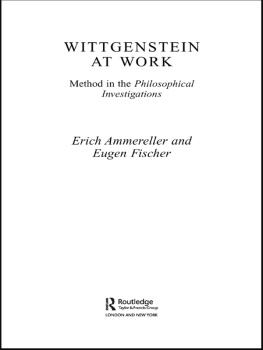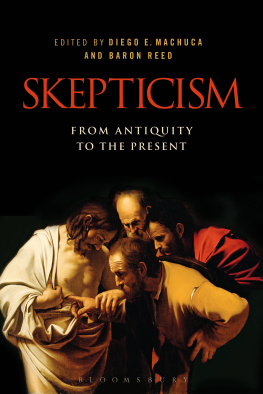Jason Bridges - The Possibility of Philosophical Understanding: Reflections on the Thought of Barry Stroud
Here you can read online Jason Bridges - The Possibility of Philosophical Understanding: Reflections on the Thought of Barry Stroud full text of the book (entire story) in english for free. Download pdf and epub, get meaning, cover and reviews about this ebook. year: 2011, publisher: Oxford University Press, genre: Science. Description of the work, (preface) as well as reviews are available. Best literature library LitArk.com created for fans of good reading and offers a wide selection of genres:
Romance novel
Science fiction
Adventure
Detective
Science
History
Home and family
Prose
Art
Politics
Computer
Non-fiction
Religion
Business
Children
Humor
Choose a favorite category and find really read worthwhile books. Enjoy immersion in the world of imagination, feel the emotions of the characters or learn something new for yourself, make an fascinating discovery.

- Book:The Possibility of Philosophical Understanding: Reflections on the Thought of Barry Stroud
- Author:
- Publisher:Oxford University Press
- Genre:
- Year:2011
- Rating:3 / 5
- Favourites:Add to favourites
- Your mark:
The Possibility of Philosophical Understanding: Reflections on the Thought of Barry Stroud: summary, description and annotation
We offer to read an annotation, description, summary or preface (depends on what the author of the book "The Possibility of Philosophical Understanding: Reflections on the Thought of Barry Stroud" wrote himself). If you haven't found the necessary information about the book — write in the comments, we will try to find it.
The essays cover a range of topics, with a particular focus on Strouds treatments of skepticism and subjectivism. There are also chapters on Strouds views on meaning and rule-following, on Hume on personal identity, and on the role of desires in the explanation of action. Despite the diversity, the essays are unified by the thematic unity in Strouds own writings. Stroud approaches every philosophical problem by attempting to get as clear as possible on the nature and source of that problem. He aims to determine what kind of understanding philosophical questions are after, and what the prospects for achieving that understanding might be. This theme--of the nature and possibility of philosophical understanding--is introduced in the opening essay of this volume and recurs in different ways throughout the remaining chapters.
In recent years, there has been a renewed interest in the philosophy of philosophy. As these essays show, one important source of insight on this subject is the thought of Barry Stroud, for whom pursuit of the philosophy of philosophy has always been indistinguishable from pursuit of philosophy as such.
Jason Bridges: author's other books
Who wrote The Possibility of Philosophical Understanding: Reflections on the Thought of Barry Stroud? Find out the surname, the name of the author of the book and a list of all author's works by series.






